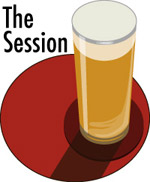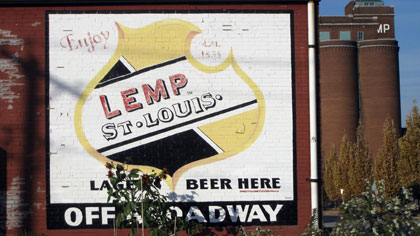Let’s start with a story from Roger Ebert.
My first professional newspaper job was on The News-Gazette in my home town of Champaign-Urbana, Illinois. I was 15. The pay was 75 cents a hour, eventually climbing even higher. I was not an intern. That was a salary. I was a sports writer, graduating to general assignment in the summer, and I pumped out reams of copy. I recall a special section commemorating the opening of a bowling alley, for which I wrote at least 15 stories, all with my proud byline; I even interviewed a pin-spotter and the owner of a shoe rental franchise.
I am inspired to recall those days because of the coverage of my recent film festival in Champaign-Urbana by Melissa Merli. The quality of her writing was splendid, her curiosity was boundless and her word volume was worthy of a bowling alley. Merli interviewed every star or director, wrote about all the movies, covered the panel discussions and the Q & A sessions, wrote about the 70mm projection and even profiled Chuck and Eileen Kuenneth, who met in my University of Chicago film class in 1983, were married in 1991, and were at their fifth or sixth Ebertfest.
Other writers also contributed to the paper’s coverage, but it was Merli’s story, and she covered it right down to the ground and put a tarp on it. I was awestruck. Outsiders might sympathize with poor overworked Melissa, but many newspaper veterans will understand that she had an ideal assignment: Write all you want about something you care about. The complaint of many journalists in these latter days of cost-cutting is that they have to boil stories into info-nuggets. As you approached Merli’s third byline on the same page, you could feel her enthusiasm and her joy in her work. I’d hire her on any paper I edited.
[“I Was a Teenage Newshound,” May 1, 2008, RogerEbert.com]
Now consider this from Michael Shapiro, founder of The Big Roundtable, “a digital publishing platform that aims to connect passionate nonfiction writers with readers who will support their work.” He was speaking at a “The Future of Digital Longform Journalism” conference last December.
For several years I was a judge at the National Magazine Awards, and found ever more that while the stories I was reading while not bad, seldom lifted off the page. The writing had become so formulaic, so safe-anecdotal lead, nut graph, quote from eminent sociologist. It was ever harder to find a story that you sensed a writer needed to tell.
 The topic for the 86th gathering of The Session is “Beer Journalism.” And it is fair enough that you roll your eyes and mutter to yourself, “Haven’t we talked this to death?” Perhaps, recently, in fact. And that includes replies to some of the questions host Heather Vandenengel suggests addressing: “What role do beer writers play in the culture and growth of craft beer? Are we advocates, critics, or storytellers?” One new link and one old reference before bending her next question into one that suits my purposes.
The topic for the 86th gathering of The Session is “Beer Journalism.” And it is fair enough that you roll your eyes and mutter to yourself, “Haven’t we talked this to death?” Perhaps, recently, in fact. And that includes replies to some of the questions host Heather Vandenengel suggests addressing: “What role do beer writers play in the culture and growth of craft beer? Are we advocates, critics, or storytellers?” One new link and one old reference before bending her next question into one that suits my purposes.
– Jeff Rice, organizer of the Craft Writing Symposium at the University of Kentucky, jumped The Session a bit by posting his contribution — Narrative Piss — when the topic was announced. And it is a lovely bit of storytelling, even if Rice describes himself as a writer, “though not a beer writer.”
– I’ve written before that I would have liked to have been able to have asked Michael Jackson just what he meant when he wrote this in the last column he dispatched to All About Beer magazine, printed after he died in 2007: “Being a critic is one of the things I do for a living. Being a reporter is another. Is a reporter a fearless seeker-out of truth, neutral and objective? Or does he recruit those qualities in support of his personal passions? When I enlisted, at the age of sixteen, I may have been attracted by the powerful purity of the first role. In the event, I grew into the second.”
So to Vandenengel’s next question, “What stories are not getting told and what ones would you like to never hear about again?” That seems pretty much like asking what stories should be told. Those decisions are as central to journalism as getting the facts right and spelling names correctly. Sitting through a three-hour sewer board meeting is not nearly as much fun as covering a championship basketball game — I know this from experience — but when the sewer board decides to impose a large levy on everybody in a neighborhood it is kind of important to the people who live there. It is one of those stories that needs to be told, although not necessarily the sort Shapiro is talking about.
We need more stories like “Conserving Water: The Fight to Protect Beer’s Main Ingredient” a few months ago in All About Beer magazine, or “Labor of Love” in the February issue of Beer Advocate. And they sure as heck should not be exclusive to beer focused publications. These are local stories that local media must be paying attention to. When “newspapers, magazines, websites, blogs, TV, books and radio” in places like Portland (either one), Boulder County, or Asheville, N.C., gush about all the positives of breweries do you get a sense they are asking the same questions Livia Gershon did for Beer Advocate?
Perhaps it is noteworthy that Gershon writes a lot about jobs (“I’m definitely more interested in and knowledgeable about labor than beer,” she wrote in an email.) From a distance her portfolio looks like those are stories she needs to tell. That’s why Courtney Cox, managing editor at BA, recruited Gershon to write “Labor of Love.” Cox provided background via email:
“The idea first struck me two years ago, during a conversation with a head brewer at one of the largest and most beloved craft breweries around — he was telling me how exhausting and time-consuming his job is, how high the turnover is, and how much physical labor is involved. It’s a side of the industry people don’t see, even people who desperately want those brewer gigs, creating a supply/demand market that employers could really exploit if they wanted to. Craft brewing is taking off at the same moment that the labor movement is really struggling, so I wanted to look into how, as the industry grows, craft breweries adapt (or not) to their new roles as major players in the (also struggling) manufacturing economy. In terms of beer journalism, I think it’s important to hold on to the idea of the journalist as a watchdog — we have to hold the industry accountable and stay ahead of these issues as they come up.
“I chose Livia after reading her article in Salon, which aligned with the angles and themes I was hoping to explore with the BA story. I’d been looking for a journalist with experience covering labor relations, and her reporting in that Salon piece was so impressive. She brought the same hard-nosed reporting style to the BA project.”
The story ran about 2,400 words, not long for a magazine but longer than usual for a daily newspaper. Gershon wasn’t quite sure how many hours she put in on the story, doing research and interviews during the course of a month in which she also worked on other articles. “BA was super helpful in putting out a call to readers who work in the industry,” she wrote in the email. “That’s where I got most of the rank-and-file people I talked with (I probably interviewed about 10 of those people and didn’t quote all of them, but the interviews were really helpful to my understanding of the industry.) I also drove down to the Harpoon brewery in Boston and talked to some workers in the parking lot — that didn’t make it into the story, but it made me more confident that what I was hearing from the people who reached out to BA was typical for the industry.”
A story that could use similar attention right now is the one about possible government regulations that would change how brewers dispose of spent grains. There are others. They don’t all need to be filed under investigative journalism. It’s not like Gershon uncovered a scandal. In fact, she saw many of the same positives that are so much fun to write about. “Honestly, I was surprised at how passionate people are about beer. I know some home brewers and beer nerds, but I had no idea how many people in the industry — even just working the bottling lines at bigger craft breweries — seem to be part of that culture,” she added in that email.
Journalism cuts a wide swath. There are different reasons a variety of stories related to beer need to be written, and I sure hope that people interested in getting the facts straight and spelling the names right step up to tackle the ones I’m too lazy to pursue. My interest these days includes the process of brewing and how beer connects people, and I think the best way to understand that is through stories. Meanwhile, I’m inclined to think the core values at The Big Roundtable provide a good touch point. Filed under the subsection Journalism: “Our background is in journalism. Our interest is in true stories. We founded the Big Roundtable as a home for wonderfully-told nonfiction. We hope to make good on a promise made during the era of New Journalism, that has since fallen to the wayside, to publish nonfiction writing that uses unconventional literary techniques.”
 Reuben Gray has posted the roundup for The Session #87: Local Brewery History. There were posts from six countries on three continents. Makes a simultaneous toast pretty difficult …
Reuben Gray has posted the roundup for The Session #87: Local Brewery History. There were posts from six countries on three continents. Makes a simultaneous toast pretty difficult …